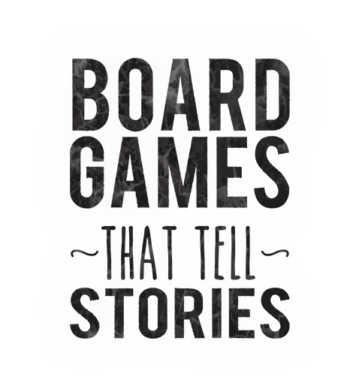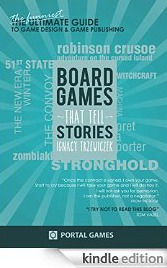Folks from USA tell that Gen Con is biggest board game convention on this planet. Folks from Europe say „Phew! Essen is bigger”. Tom Vasel pours oil to the flame and says that Gen Con not only managed to catch up Essen, but grew up bigger.
What can I say. I am one of these lucky bastards who attended both Essen and Gen Con. Let me add more oil and tell you what I think.
***
Let’s start with numbers.
Gen Con 2014 new releases? Eric W. Martin listed exactly 300 games. Not all of them were actually released. Not of them were actually new releases. But well, screw it. Let it be 300 new games.
What about Essen 2014? Eric W. Martin listed 502 games. Huge number but… Essen was cheating for years… Let me look into this list with a magnifying glass. There is more than 50 games on that list that – as far as I know – were already released at Gen Con and now are just listed again.
It’s more like 300 to 450.
Still, in terms of number of new releases, 1:0 for Essen.
What about number of visitors?
This is tricky part, Essen counts entries, not actual people. They say 150 000 people visited fair for 4 days, and it might mean about 37 000 unique visitors. It might mean that. We don’t know.
Gen Con says they had more than 60 000 unique visitors.
Looks like it is 1:0 for Gen Con…
***
What about gaming?
When exhibitor hall closes at Essen, gamers go to hotels and play all night long at hotel lobby, at hotel restaurant, at hotel rooms.
When exhibitor hall closes at Gen Con, gamers go to Open Gaming Area and play all night long. Or go to one of many game rooms at convention centre. Or go to any restaurant or pub around Indiana Con Centre and play. And in hotels too. And everywhere.
This is amazing – whole Indiana downtown around Con Centre changes into Game city for this 4 days. This is freaking awesome – you walk the streets and there are gamers, all around, playing, talking, having fun.
Gen Con wins 1:0
***
Anything more?
Essen fair is games fair – huge, insane huge exhibitor hall. That’s all.
Gen Con fair is games convention. It has huge exhibitor hall. And it has insane number of other attractions. Game nights, tournaments, panels, larps, RPG… Thousands (yes, you read it right – THOUSANDS!) of events that take place there. This con runs 24 hours without a 5 minutes break.
Gen con wins 1:0
***
Exhibitor hall – closer look.
Gen con is all about new releases. FFG is bringing all their best. AEG is bringing all their best. And IELLO, and Stronghold and Plaid Hat and Portal Games too. We put best stuff we have and we make US gamers feel like in heaven.
Essen has new releases too, but this list of new games is more diverse. You find here super rare gems. Games from Japan, games from Poland, Spain, Italy, games from Taiwan and games from Russia, games from all different parts of the world. Many unknown companies, many small gems that you can browse and try and hopefully find a treasure designed by new designer.
I would call it a draw. I love those hyped games like Dead of Winter, Five Tribes or Imperial Settlers (yes, I am doing product placement here). But I also love to walk around those all small booths at Essen and look for games and publishers I have never heard of. This feels like a gaming adventure. Gen Con vs Essen – 1:1
***
Exhibitor hall – second closer look
Gen con is mostly about game publishers.
Essen is also about game stores and second hand games stores. OMG! You can find there old games like El Grande or Tikal. You can buy games with super prices. You can negotiate prices. There are so many games on sale, there are so many chances to buy great games for 5 euro! Man, you just walk those corridors and you can not resist – special offers and discounts on every corner.
Essen wins. If you want to buy not-new-releases, Essen wins. Much wider selection and much better prices.
***
We may go on and on.
At Essen people believe I can actually speak English.
At Gen Con I can go and watch Indiana Colts match without even leaving convention center.
At Essen you can easily find grocery store with huuuuuge selection of cookies, chocolates, sweets…
At Gen Con I have wi fi on every corner of the street, in every store, pub, everywhere. Except exhibitor hall…
At Essen I meet gamers from whole Europe, from Spain, to Russia, from Italy to Hungary, from Norway to Croatia…
I love both conventions. I think I might fell in love with Gen Con lately. But Essen is still my good old love…



 I strongly believe that good board game is the one that tells a good story. You play it and suddenly you are sucked into it, you feel chills on the skin. Emotions grow. In a moment you defend castle. You hear roar of warriors. You smell boiling oil. You are into it.
That's how I design my games. I always want to tell a good story. I want players to be into it. As deep as possible.
I strongly believe that good board game is the one that tells a good story. You play it and suddenly you are sucked into it, you feel chills on the skin. Emotions grow. In a moment you defend castle. You hear roar of warriors. You smell boiling oil. You are into it.
That's how I design my games. I always want to tell a good story. I want players to be into it. As deep as possible.



